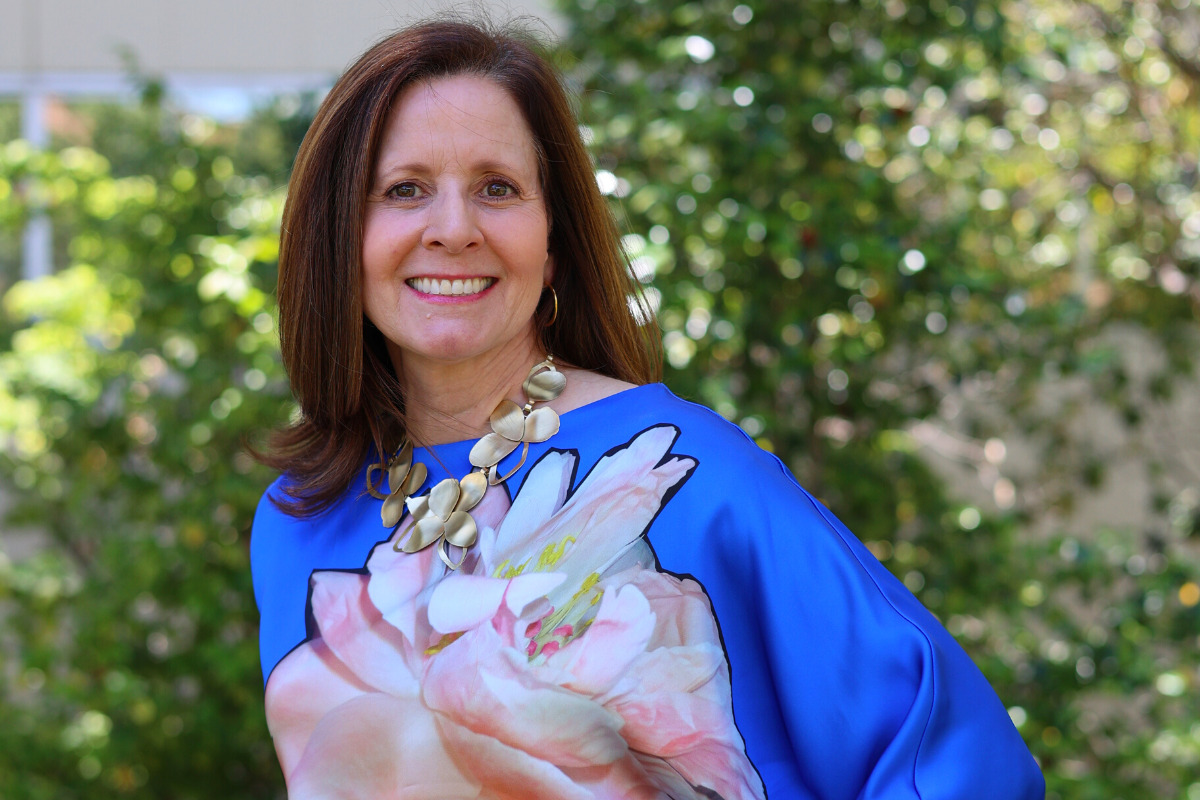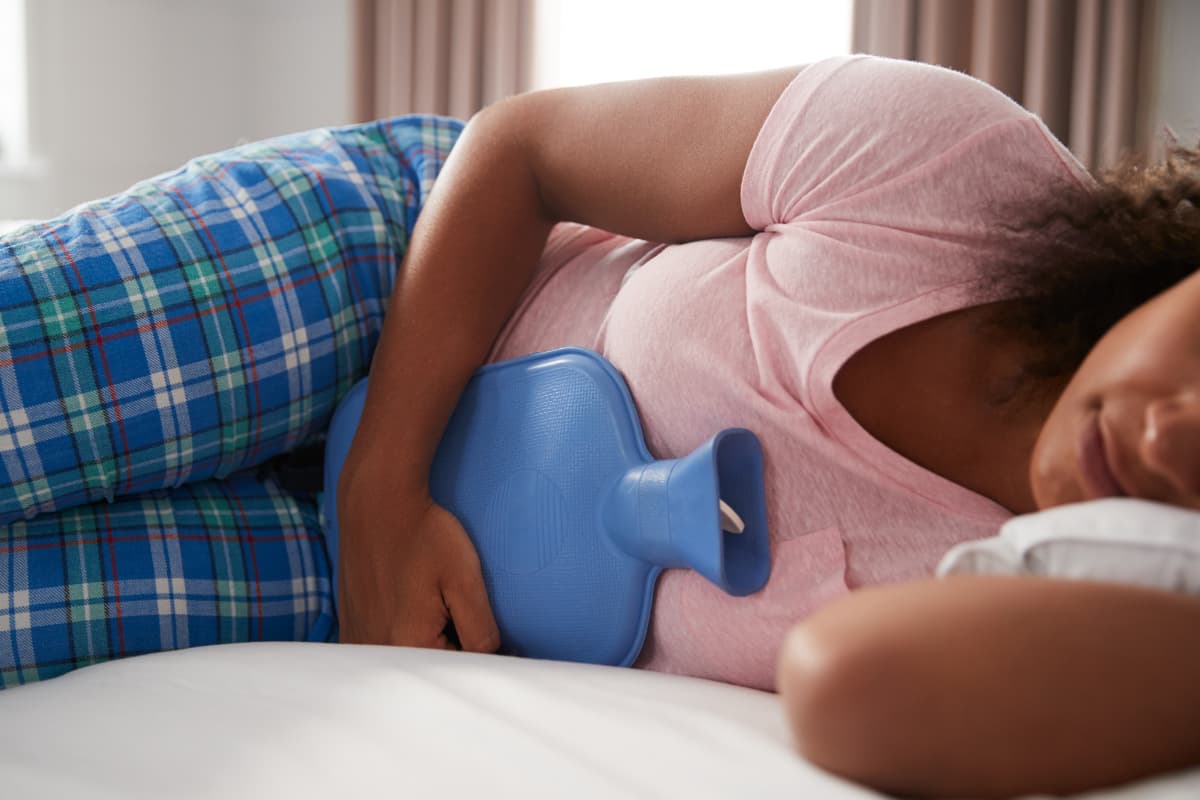Our Founder’s Story

“If I could thrive through menopause and midlife, I knew I could help other women do the same, and not just in the U.S. but on a global scale. ”
I don’t know about you, but I am part of that generation that was schooled not to talk about menopause. I didn’t think much about it before, but it fascinates me now that I have experienced this pivotal change in a woman’s life. We educate young girls about what to expect when starting their period. We provide sex education when adolescent girls transition to their teen years. These conversations can be awkward and may not be comprehensive, but we don’t shy from talking about these critical transitions. Fundamentally, we believe it’s essential for young girls to be prepared for these stages in their life. As girls grow up to be women, the hyper-preparation for pregnancy begins and is closely followed by fertility education and resources for women who experience difficulty getting pregnant. After that, the education on what to expect next in a woman’s life goes radio silent, particularly around menopause. So silent it’s positively deafening.
For over 25 years, I’ve helped start and grow innovative technology-centric companies that have improved patient outcomes and created a better patient journey. I had the opportunity during this time to develop many ground-breaking products, including products for pregnancy, fertility, and neonatal care that improved birth outcomes and were the forerunner to today’s pregnancy and fertility apps. When I look back, I am most proud of my work in women’s health.
You would think that perimenopause and the usual bothersome symptoms would have jolted me into reality and urged me to learn more, which is the case for most women, but I remained oblivious. A whopping eighty-five percent of women experience symptoms of menopause and, for many, send them into a hyper-activated search for relief. But apart from a single hot flash when I was standing in Nordstrom’s one day, I didn’t have any perimenopause symptoms. I slept like a log, maintained my weight, had no vaginal issues, and my brain was razor-sharp. I thought I was one of the lucky fifteen percent who sails through perimenopause unscathed. My quiet triumph lasted into postmenopause. Then, all of a sudden, things changed. About a year into postmenopause, at age 52, the symptoms hit me like a ton of bricks. I walked around for weeks feeling like a sweaty, dazed, bloated zombie. I experienced many classic symptoms, including hot flashes, brain fog, poor sleep, headaches, and the “meno ten,” those ten pounds that sit right around the midsection that just appear one day out of nowhere. But as a female executive, the brain fog alarmed me the most. In my work life, I needed to be on-point, laser-focused, and move at warp speed every single day.
“I couldn’t let these symptoms stand in my way. I knew I had to take control so that I could be my very best self every day. ”
This state of affairs was so out of character for me. I wasn’t sad or depressed. I was angry. I wanted my old high-achieving, energetic, healthy self back. There was so much I still wanted to accomplish, and with at least 35+ years of life left, I needed to get back on track. I couldn’t let these symptoms stand in my way. I knew I had to take control so I could be my best self every day.
I did next what most women do when menopause symptoms are impacting their life – I made an appointment with my gynecologist. And, like most women, found the experience to be completely dissatisfying. My doctor listened very patiently as I described my symptoms. Then, she turned to her computer and started typing, explaining to me that she was writing a prescription to start me on a low dose of menopausal hormone therapy (MHT). We would see how it went, adjust the dose, if necessary, and after five years, taper off.
I don’t have anything against MHT particularly. Every woman should evaluate her situation and the risks in conjunction with a qualified physician and make a decision that works for her. It’s just that at this stage of my life, I am not very keen on taking drugs for non-life-threatening health issues. My preference is to start with lifestyle changes whenever possible, which works exceptionally well for many conditions and promotes healthy aging. I found it interesting that my physician didn’t even bring up lifestyle changes as the first course of treatment. After all, I wasn’t in the fifteen percent or so of women with severe menopause symptoms, nor had I started menopause early. I reached menopause at the classically average age of 51, had classic symptoms, and was classically bothered by them.
When I said I wanted to try lifestyle interventions first and asked her for recommendations, my doctor looked at me with a blank stare. She said I could try them but didn’t have any advice to offer. In the end, I left feeling very dissatisfied with the experience. As I quickly learned, this is a common experience among women. A small percentage of women opt for some form of prescription hormone therapy. Most prefer to try lifestyle and natural remedies for their symptoms. Sadly, only two percent of physicians discuss lifestyle interventions for menopause symptoms with patients, according to a recent North American Menopause Society and Gallup survey. The physicians who analyzed the results found it appalling, and so do I.
“Menopause simply isn’t a high priority in women’s health research. For that matter, women’s health research as a whole is widely acknowledged to be an under-researched area of medicine.”
What I did next was to dig in and apply my professional expertise to the problem. As a long-time healthcare executive and entrepreneur, I know how to solve complex healthcare problems. My first step was to do a deep dive into the scientific literature, reading paper after paper on menopause with a focus on those that examined the effect of lifestyle interventions, nutrients, herbs, and supplements on symptoms. While there are research and evidence on these topics, unfortunately, it is less robust than the research on pharmaceutical interventions. Menopause simply isn’t a high priority in women’s health research. For that matter, women’s health research as a whole is widely acknowledged to be an under-researched area of medicine.
“I was thrilled with the outcomes: symptoms conquered, relationship thriving, life better than ever. Call it a midlife celebration, rebirth, whatever.”
With the available evidence in hand, I started an experiment with myself as an n of 1. I created a detailed spreadsheet to track everything – what I ate and drank, how much and what type of exercise I did, my mood, how I slept, and more – and logged the data each day. Then, introduced several interventions – everything from a strict 30-day elimination diet to meditation. A few weeks into the experiment, something that felt a bit miraculous began to occur. My symptoms were going away – either entirely or so reduced that they didn’t interfere with my quality of life. Also, my pursuit of knowledge and single-minded focus on the issue prompted many candid and ultimately positive conversations with my husband. I was thrilled with the outcomes: symptoms conquered, relationship thriving, life better than ever. Call it a midlife celebration, rebirth, whatever. It felt like walking through a door into the best chapter of my life, only I wasn’t exactly sure what this chapter looked like. I just knew it was the start of something great.
Little did I know then that beating my symptoms would lead to starting a company to help other women find health and wellbeing in midlife. With my health and wellbeing not only on track but better than before, I started to do some deep work to figure out my next career move. After 50+ years of life, 25 spent in demanding leadership roles, it was time to excavate and examine feelings, behaviors, and desires about who I was and what I wanted to achieve.
My first epiphany from this excavation work is that I wanted to start my own company. Over the years, many people asked me why I didn’t start something myself. After all, I had tons of experience in senior leadership roles in venture-backed startups. The reasons are many, but at the end of the day, it all boiled down to the belief that I was somehow, after all these years, still missing essential skills. It was the classic situation of a woman believing she must be 100 percent qualified to do a job. Well, with the help of some amazing women who challenged me to let go of this false belief and with the support of my husband, I found the confidence I needed to go for it.
The second epiphany was my new ambitious calling to help other midlife women and raise awareness of the importance of health and wellbeing during this period of a woman’s life. If I could thrive through menopause and midlife, I knew I could help other women do the same, not just in the U.S. but on a global scale. So, instead of starting a company around other products the healthcare industry and investors find sexy and exciting, I chose the less popular route of menopause and midlife women’s health.
“I am passionate about women’s health and dead serious about blowing away the shame and silence and creating a better path forward for women to navigate the tricky waters of midlife and enjoy optimal health and wellbeing.”
So, what drove me to pursue an area that had been cloaked in shame and silence? Because I like to champion the underdog, and women and women’s health are classic underdogs. Because I thrive when working on tough problems and underserved populations. Midlife women are quite possibly the most overlooked segment in healthcare. Also, I enjoy confronting taboos (my brother has nicknamed me the “confronter”), and women’s health and menopause have taboos in spades. And last but certainly not least, I am passionate about women’s health and dead serious about blowing away the shame and silence and creating a better path forward for women to navigate the tricky waters of midlife and enjoy optimal health and wellbeing.
Rising out of the fire of my own menopause experience is Lisa Health and our groundbreaking Midday app. It’s been an exciting journey. One that I wouldn’t trade for anything. I hope you will join us and let Midday be your trusted guide and companion in midlife. Drop me a line at ann@lisahealth.com and share your story and how we can best support you on your midlife journey.
Be well,
Ann
Ann Garnier, co-founder and CEO of Lisa Health, is a seasoned healthcare leader, helping to create, launch, and scale innovative tech companies and products that have improved patient outcomes and access to care. At Lisa Health, Ann leads the team to create tech-enabled solutions and community, including the Midday app for menopause and healthy aging, to empower women to gain control over their bodies and thrive during menopause and midlife. She is passionate about women’s health and advancing research beyond pregnancy and fertility to reduce the serious and costly health risks that women face as they age and help them celebrate the start of something great.
Sign up for more unique women’s health content
By submitting this form, you agree to the Lisa Health Privacy Policy and Terms of Use


